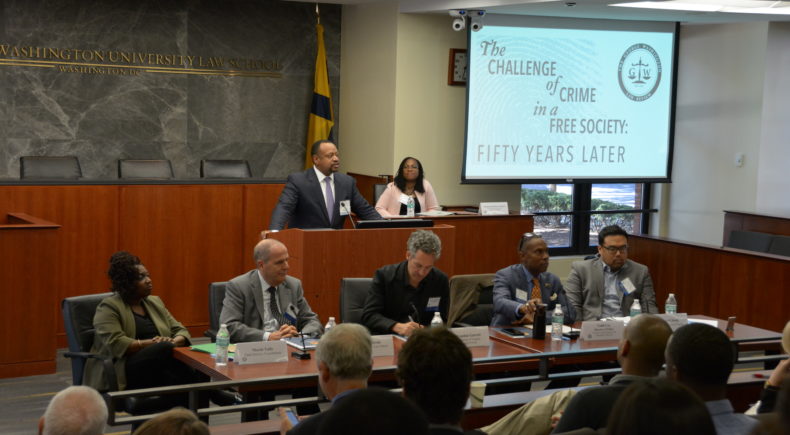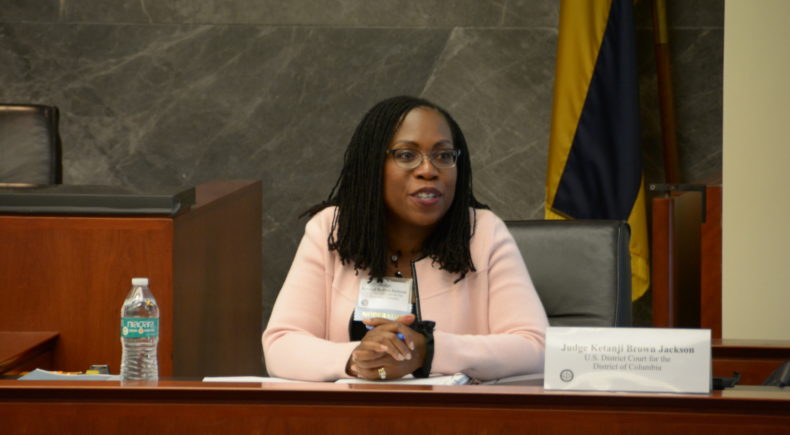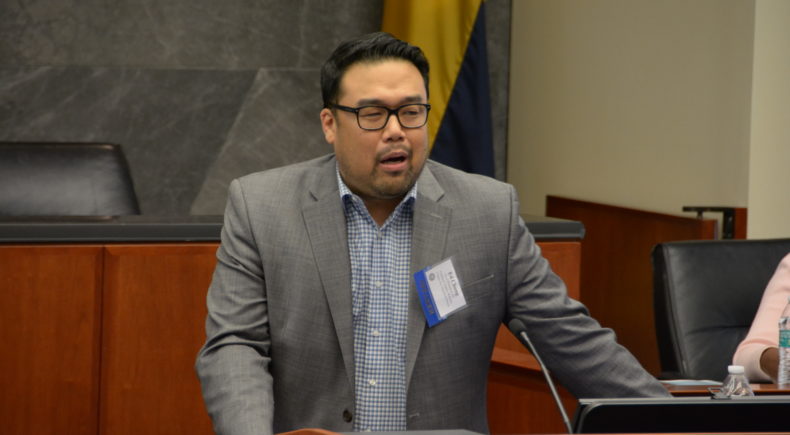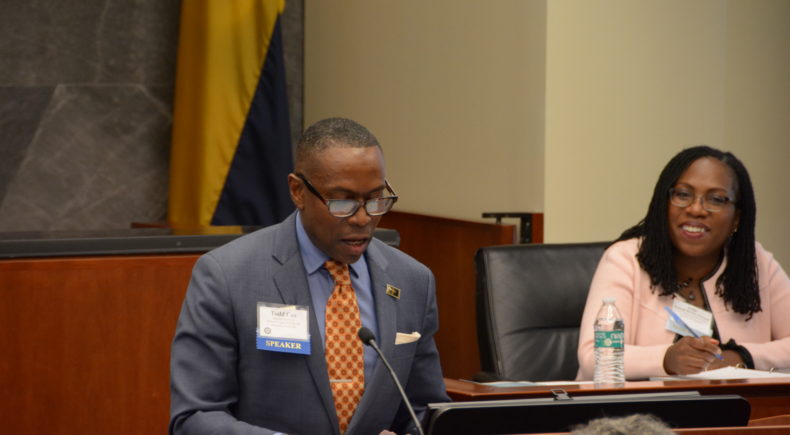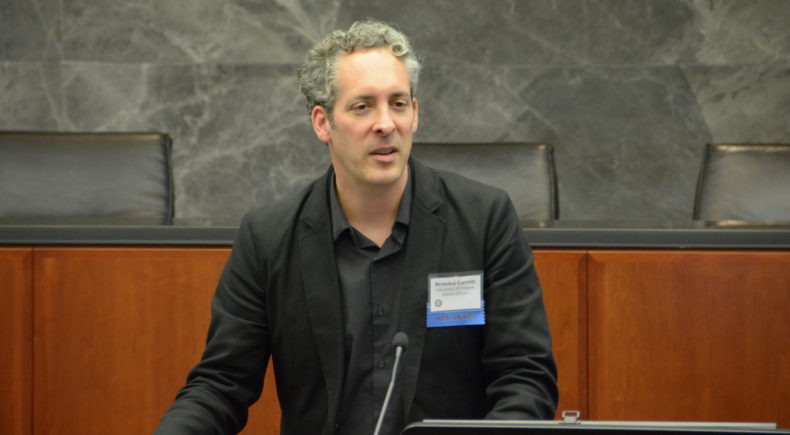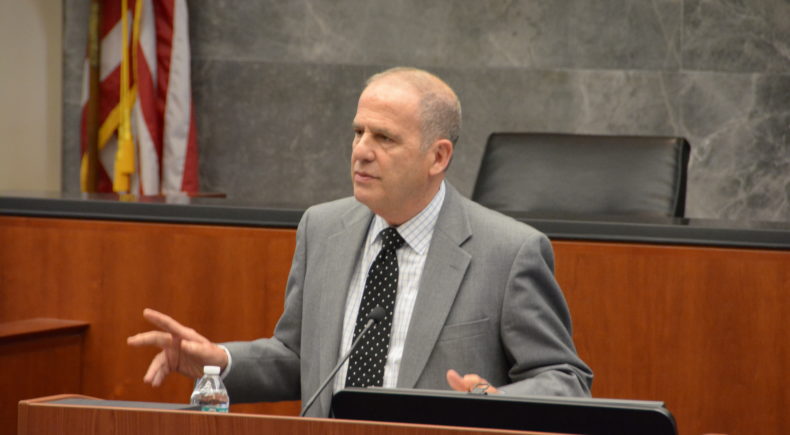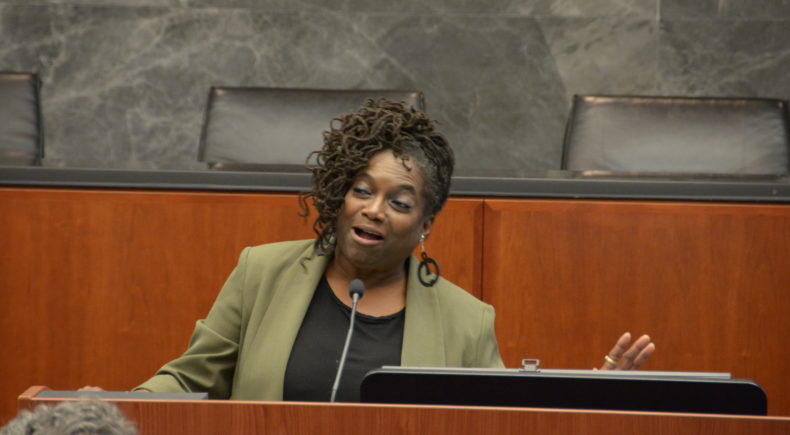Symposium 2017 | Looking Forward: Criminal Justice Policy and Reform
Friday’s first afternoon panel, entitled “Looking Forward: Criminal Justice Policy and Reform,” was moderated by Judge Ketanji Brown Jackson of the United States District Court for the District of Columbia. The panel addressed various perspectives on the meaning and trajectory of criminal justice reform and panelists discussed what can be learned from the past and what they hoped for and expected going forward.
Edward Chung, Vice President for Criminal Justice Reform at the Center for American Progress, focused on the way in which the criminal justice system in most states is fragmented into multiple actors who often have differing perspectives on the goals and means of criminal justice; they also often have differing political pressures and motivations affecting the way they do their jobs as well as their willingness to act. He described the “criminal justice system” as a “conglomeration of systems” and noted that reform must acknowledge this quality. He stated that he would focus reform efforts first on police because the institution of policing is the most common point of entry for individuals interacting with the criminal justice system. Mr. Chung suggested that, at least from his perspective, the focus on the future of the criminal justice system should be on professionalizing police and building a police force comprising progressive individuals responsive to community needs.
Todd Cox, Director of Policy at the NAACP Legal Defense and Education Fund, Inc., began by stating that LDF approaches all of its work—which covers a wide variety of political and legal domains, including criminal justice reform—from a racial justice lens and seeks to eliminate racial bias at all levels of the criminal justice system. Mr. Cox noted the disparate impact of many of the most pernicious aspects of the criminal justice system on black people and other people of color. He was, however, optimistic that community organizing and engagement could result in meaningful reform, even in the face of a Presidential administration that seems resistant to oversight of state and local criminal justice systems, especially with regard to police. Mr. Cox explained how LDF’s work with communities has resulted in continued enforcement of consent decrees with local police departments, even where the U.S. Department of Justice has failed to support consent decrees and has challenged them in court. Similar to Edward Chung’s arguments about the many facets of the criminal justice system, Mr. Cox also cautioned against a narrow view of the criminal justice system that focuses only in reforming sentencing and incarceration because the reach of the system is far wider than those domains. He ended his remarks with a call for action, encouraging communities and organizations like LDF to become “private attorneys general” and to engage in local reforms and innovation even in the face of federal inaction.
Brandon Garrett, White Burkett Miller Professor of Law and Public Affairs and Justice Thurgood Marshall Distinguished Professor of Law at the University of Virginia School of Law, spoke about the need to more carefully scrutinize forensic and other evidence before relying on it to arrest and convict individuals. Professor Garrett opened with the story of Brandon Mayfield, the United States citizen falsely accused of perpetrating the 2004 Madrid train bombings. He spoke about how Mayfield was arrested largely on the basis of fingerprints believed to match those of the bomber, and how stereotypes about Mayfield’s Muslim faith were used to corroborate law enforcement’s suspicion that he committed the crime. He noted the colossal failure of the justice system in Mayfield’s case and used it as a cautionary tale to urge reformers not to assume that because something appears “scientific” that it must be accurate. Professor Garrett noted the absence of scientists, statisticians, and psychologists in the conversation about criminal justice reform, and stated that, without their perspectives and without exacting studies of the reliability and proper use of forensic evidence, there could be no confidence in the system.
Paul Marcus, Haynes Professor of Law at the William & Mary Law School and current President of the Association of American Law Schools, focused on the failed promise of a right to counsel for indigent defendants. He believes that this is the most pressing problem that must be addressed for the future of criminal justice reform. He discussed the stalling of efforts to fund more criminal defense counsel during and after the recession and noted that those effects continue today. Professor Marcus remarked upon harrowing statistics of caseloads for public defenders across the country and noted the inadequacy of the Strickland v. Washington test to address rampant ineffective assistance of counsel due to heavy workloads and underfunding for necessary staff such as investigators and lack of funding for experts that could make or break cases. Although Professor Marcus was doubtful that the U.S. Supreme Court would soon change its standard for ineffective assistance of counsel, he did express optimism about recent cases in which localities have identified changed funding and staffing levels at public defender offices in response to targeted litigation.
Nkechi Taifa, Advocacy Director for Criminal Justice at the Open Society Foundations, focused on the many collateral consequences of “tough on crime” legislation and critiqued the common argument that the criminal justice system and its disparate impacts are somehow justified because the loudest calls for crime control often came from the very black communities now negatively affected by criminal justice legislation and policy. She stated that the often victimized communities crying out for help were given more police and more punishment, but were ignored in their calls for stronger community institutions and infrastructure such as schools and community centers. She also stated that the people calling for crime control in their communities largely could not have anticipated the harsh and vast impact of the many collateral consequences and civil disabilities that now come with a conviction, including loss of public housing and other benefits, termination of parental rights, and the inability to reenter the workforce or even vote after serving time for a conviction. Ms. Taifa stated that, despite what seemed to be a recent stalling of the momentum in the direction of reform, she was hopeful that the new willingness on the part of people of many political stripes to openly discuss the effects of the criminal justice system would allow a light to continue to be shed on the issue and lead to a more compassionate and fair society.
This summary was authored by Law Review member Elenore Wade.

